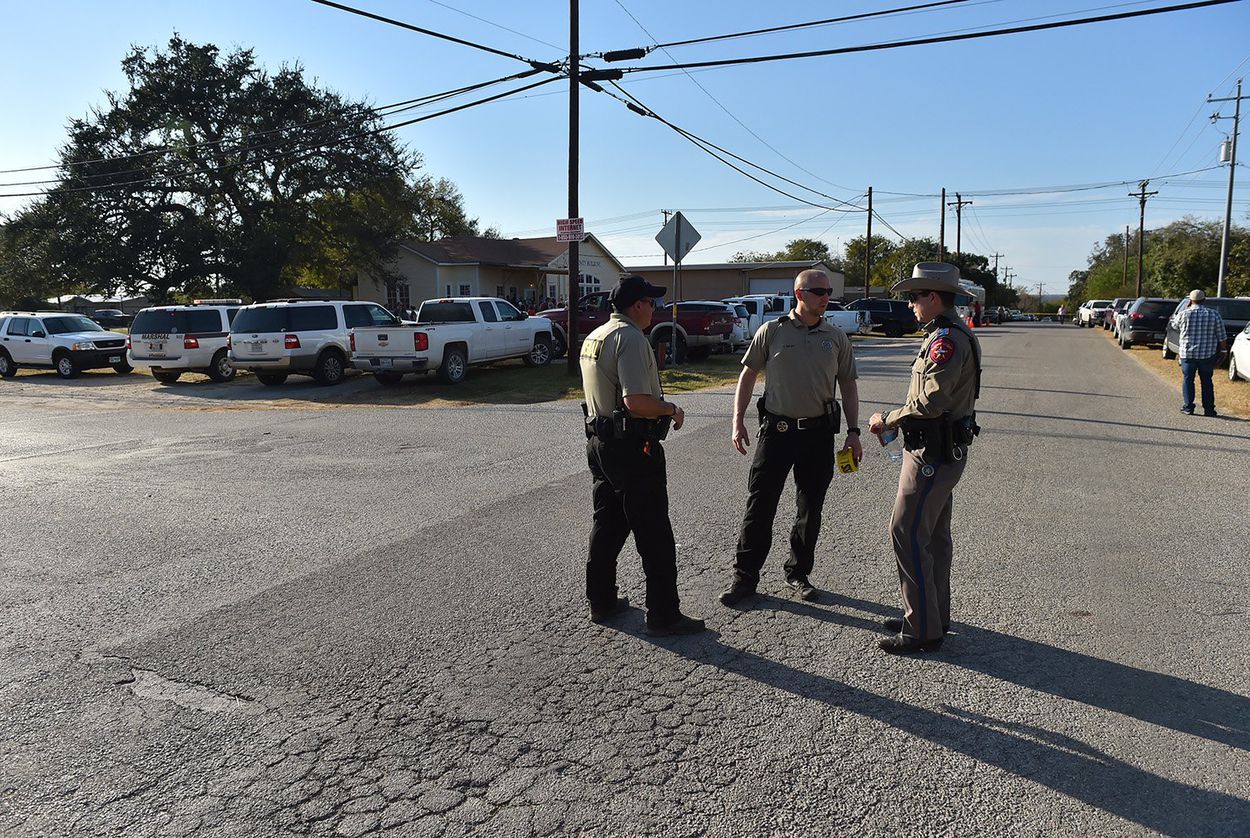Only hours after First Baptist Church in Sutherland Springs was ravaged by one of the deadliest mass shootings in U.S. history on Sunday, Texas Attorney General Ken Paxton said on Fox News that "arming some of the parishioners or the congregation" could help stop similar attacks from occurring in the future.
A state law put into effect in September made it legal for churches to have armed volunteer guards — but the law's author says many churches in Texas don't know it's an option.
State Rep. Matt Rinaldi, R-Irving, said he was inspired to submit a bill to the Legislature after discovering that though existing law had allowed congregants with licenses to carry to bring firearms into houses of worship, they weren't allowed to conduct security functions.
"My wife and I were doing church security at the St. Anne’s carnival over by us, where unarmed security were looking for lost children and making sure everything was being run smoothly," he said. "And afterwards, I was looking at the occupational licensing laws looking to see which ones didn’t make sense, and I found out what we were doing and what the church was doing was illegal under current Texas law."
Rinaldi said churches would have either had to contract private security firms or obtain a $400 "letter of authority" from the state to create volunteer security teams.
"We’ve seen churches being targeted time and time again, and it doesn’t make sense that they can’t protect themselves without hiring private security, which a lot of small churches don’t have the funds to do," he said.
Rinaldi said that after the measure passed he notified every church in his district that they had the option for volunteer security.
"They were talking on Fox News as if [the bill] didn't [pass], so I think it’s important we get the word out that the law did change," he said.
While opponents of the law feared the law would lead to the creation of untrained militias to guard churches, Rinaldi said congregants still need licenses to carry in order to have guns in church.
"Before the law was passed, individuals in church could still carry, Rinaldi said. "What this allows the church to do, which I think is safer, is identify who those people are and coordinate so that everybody knows who’s providing security."
Gun regulation advocates, however, have argued that arming more people in churches will not deter future shooters. Gyl Switzer, executive director of Texas Gun Sense, said the data does not support the notion that an armed person could stop a mass shooting.
She added law enforcement officers often tell her organization that it can be difficult to determine who is the assailant during an attack when everyone has a gun.
"People should be safe and comfortable in their places of worship," Switzer said. "We do know that there are effective ways of reducing gun violence. ... Definitely not arming more folks."


